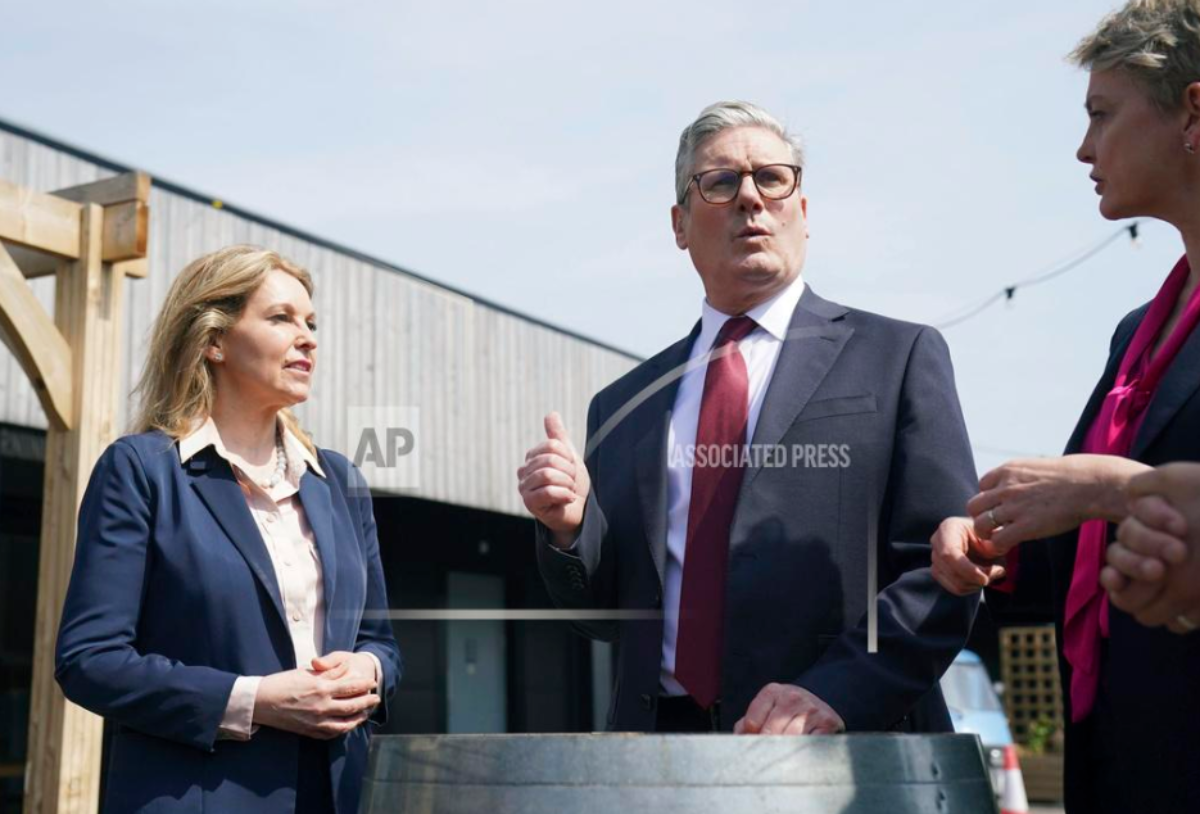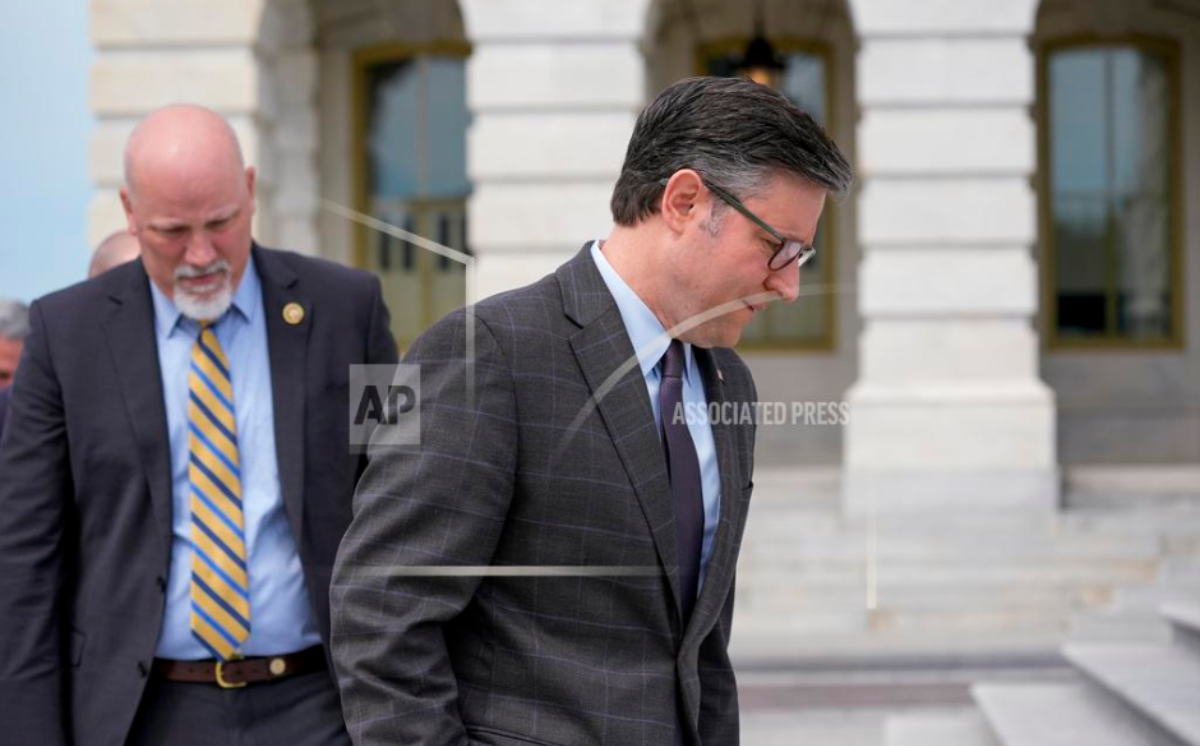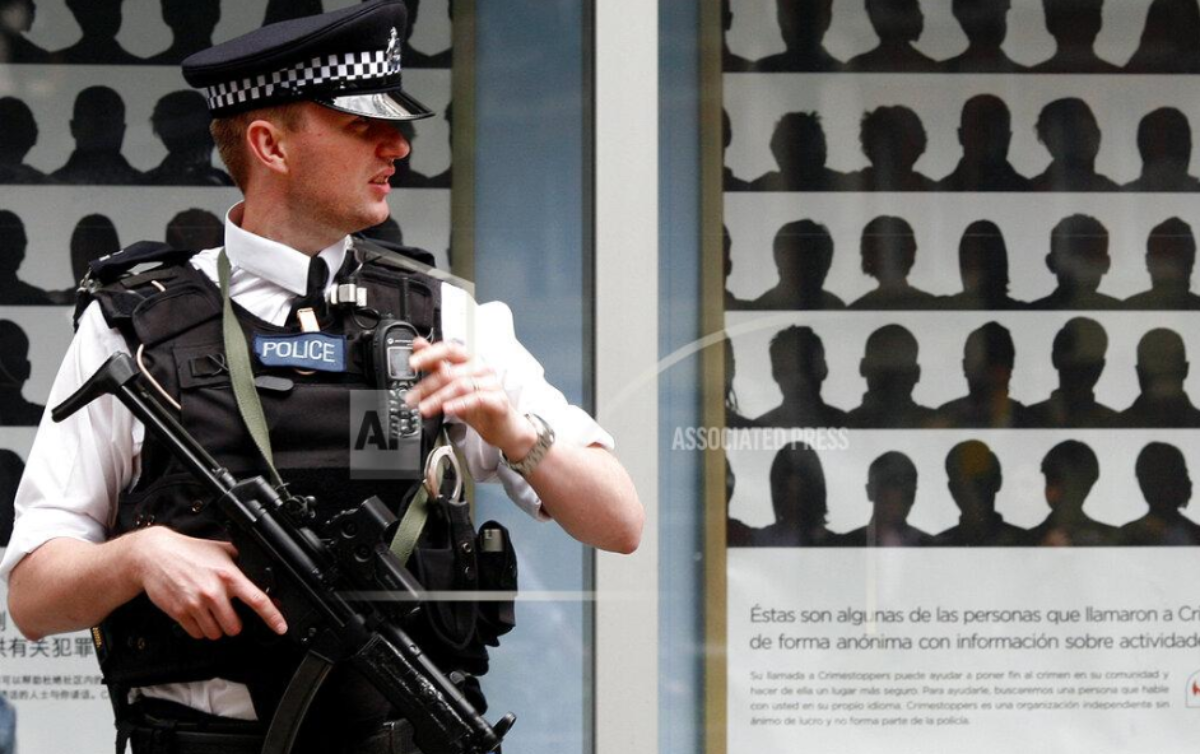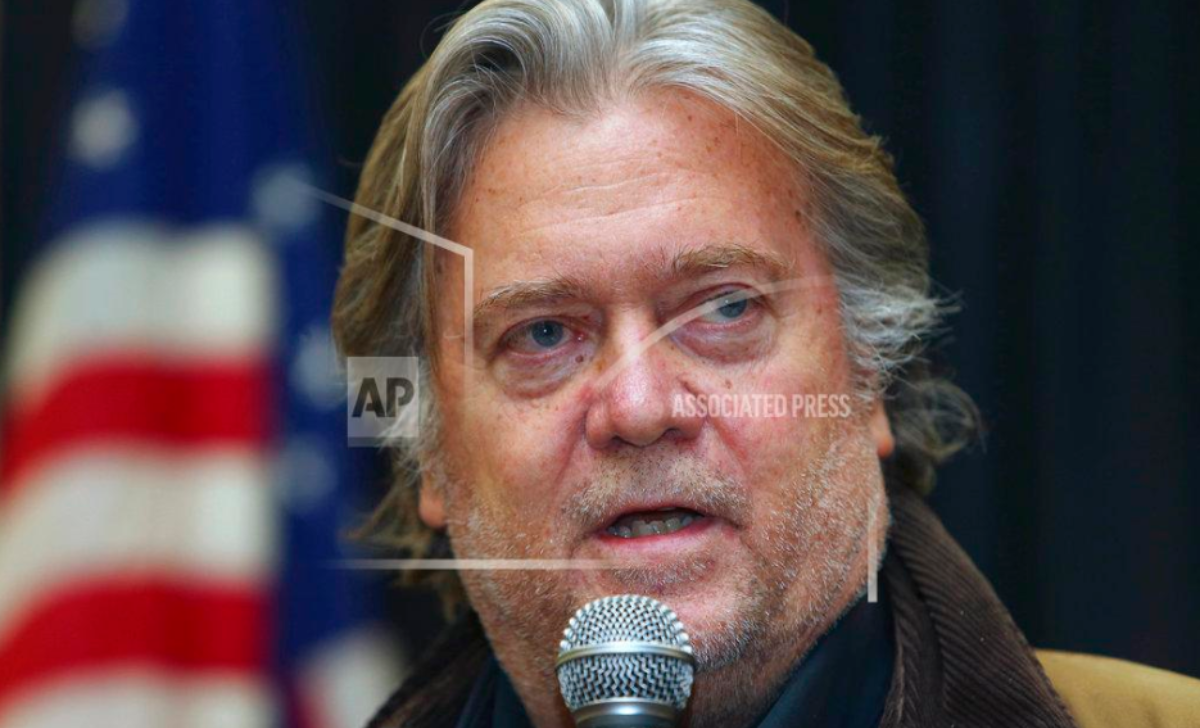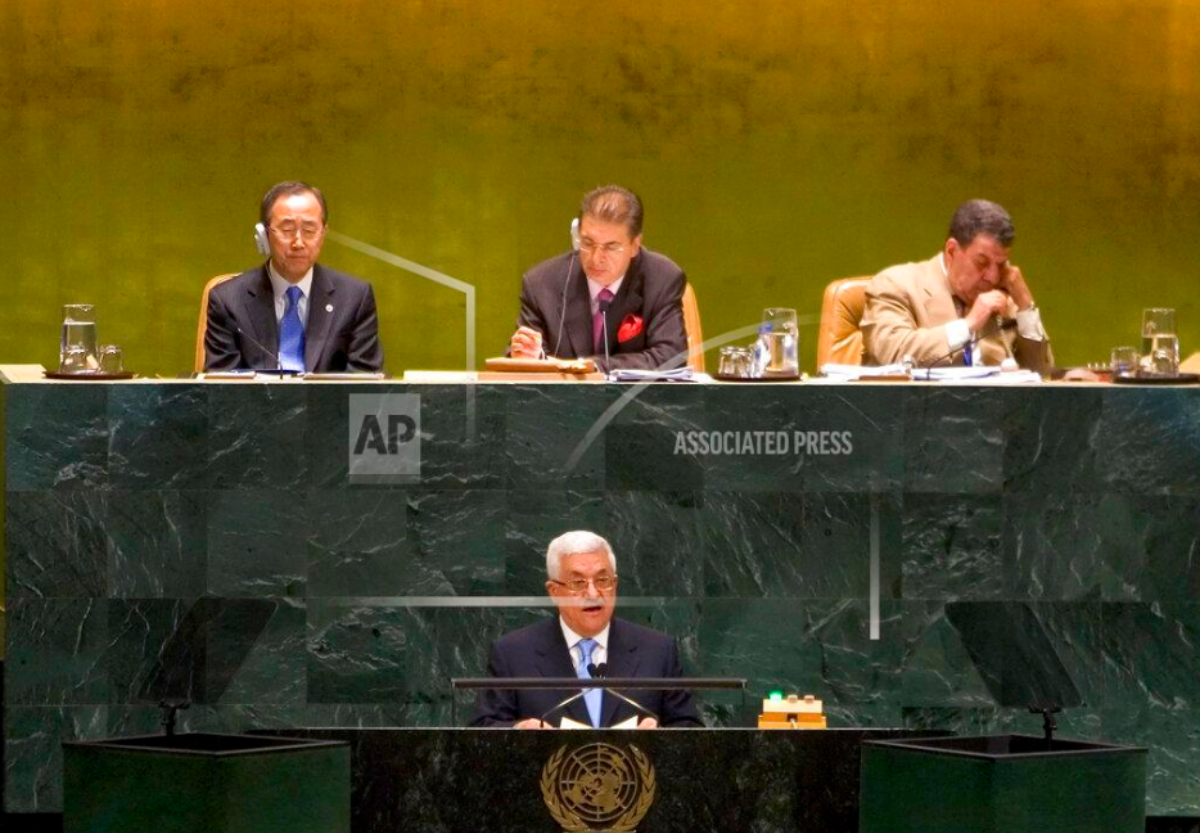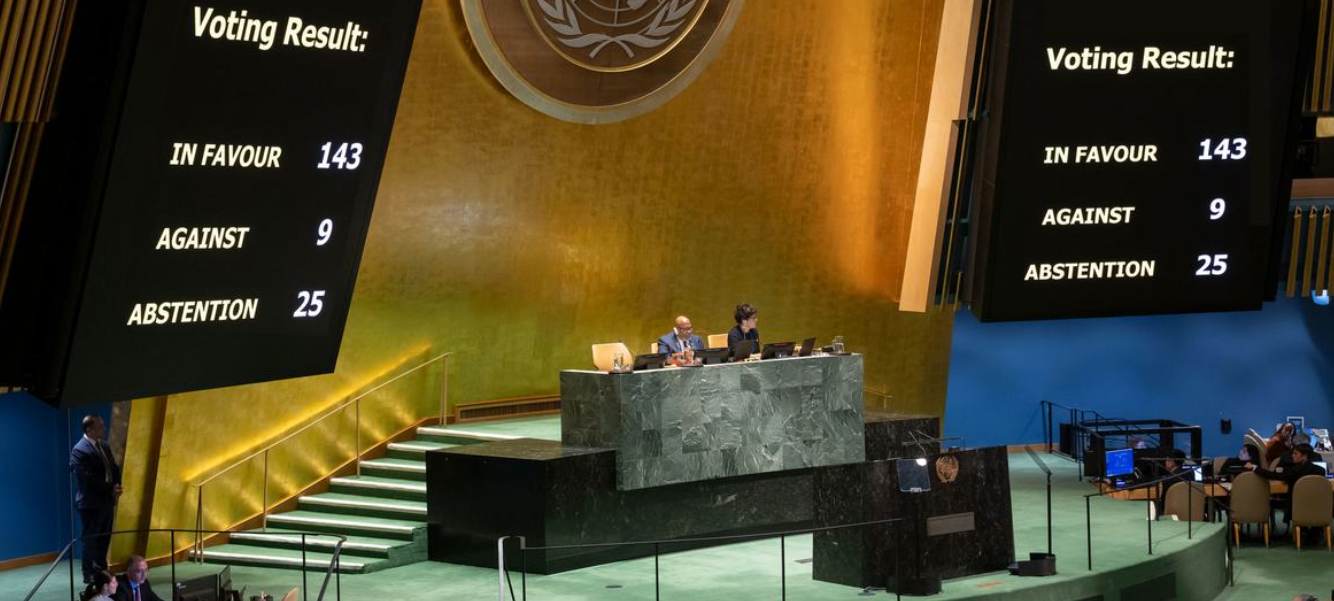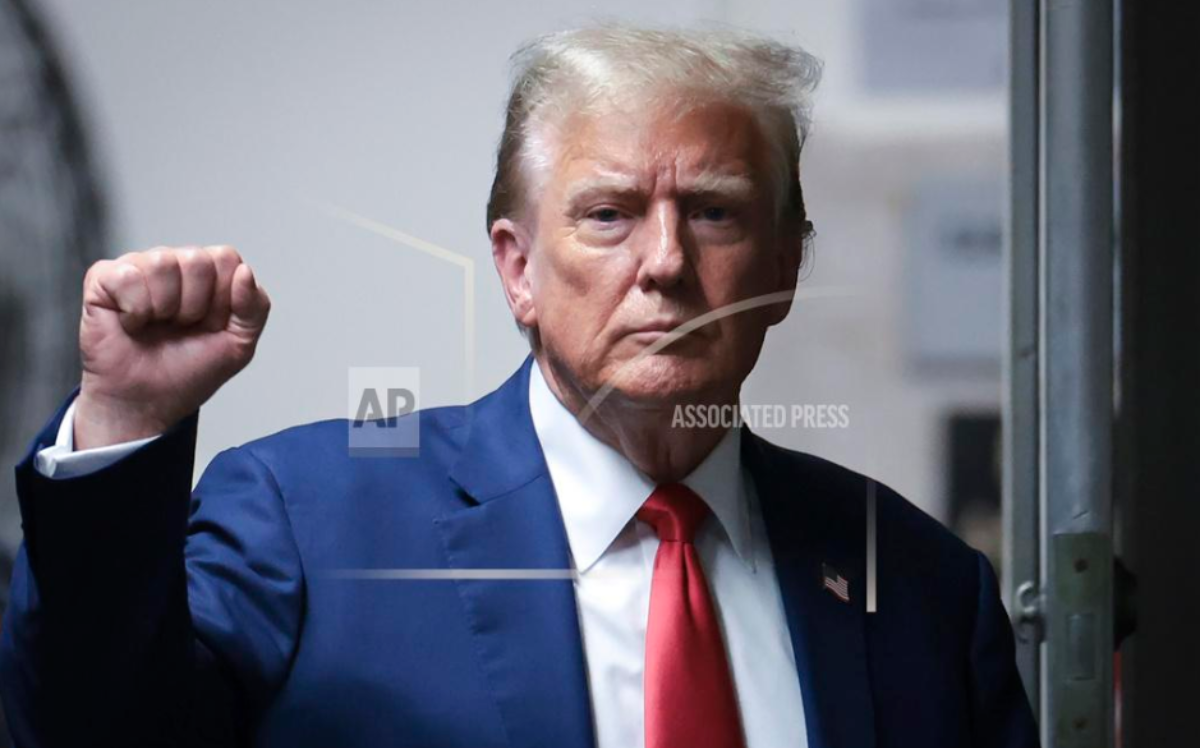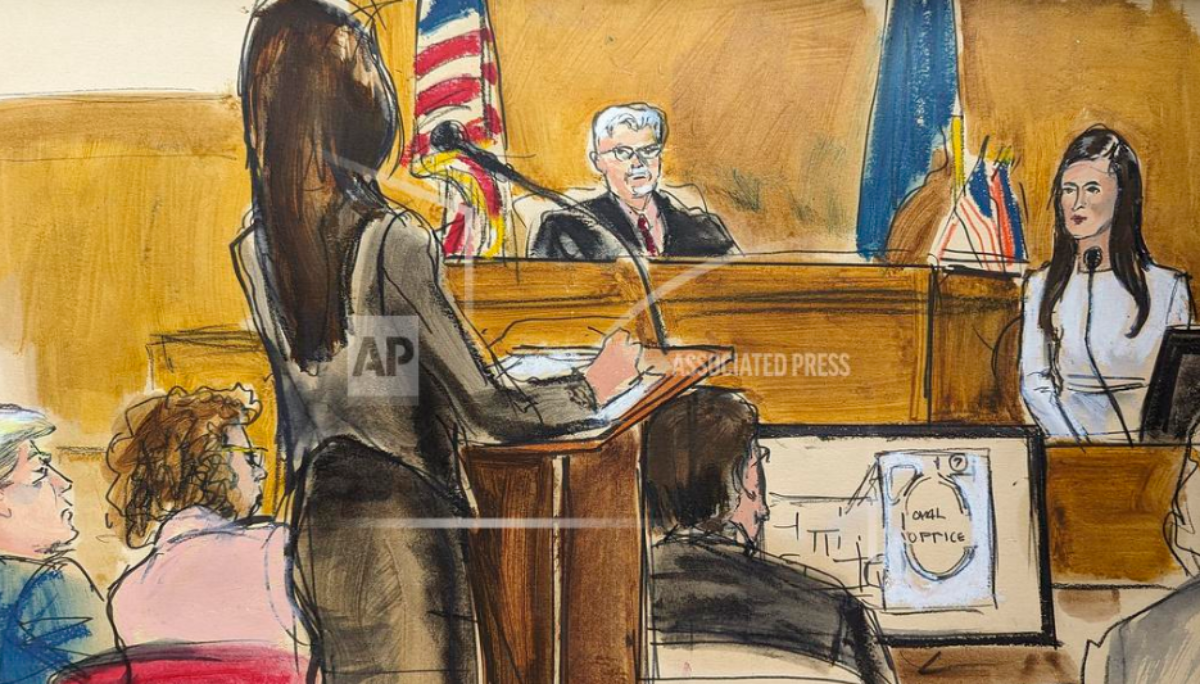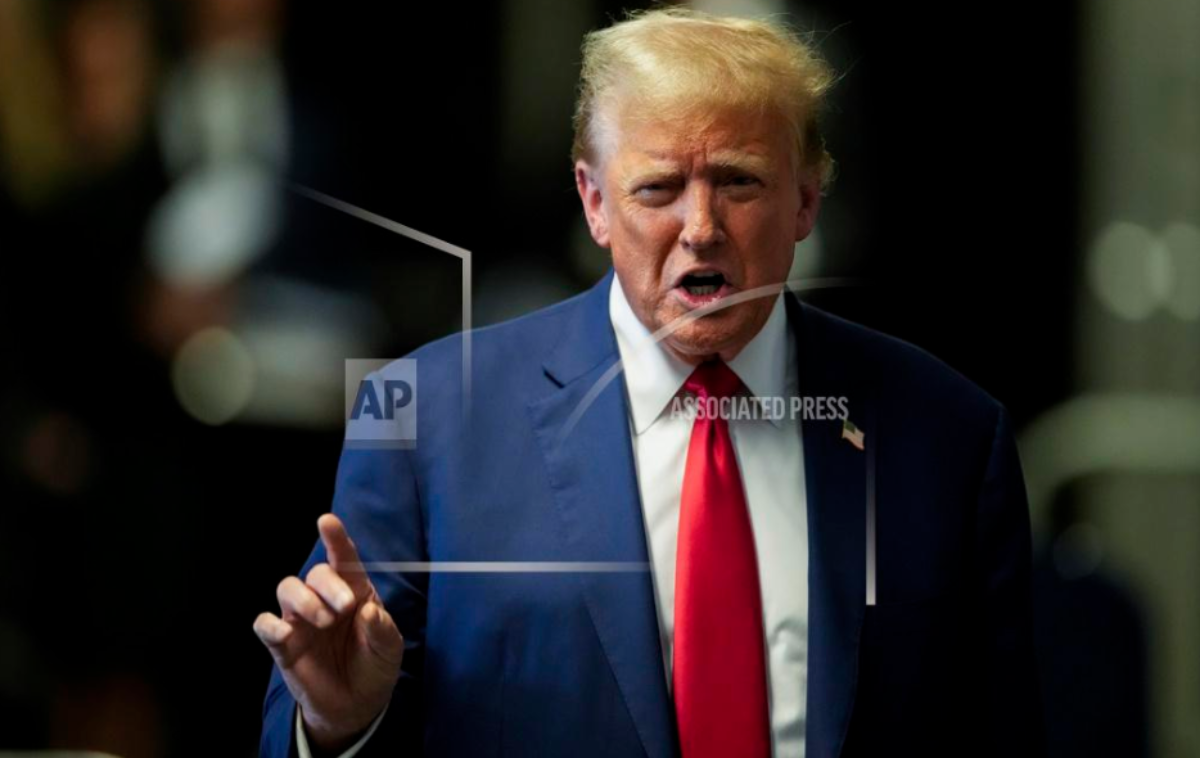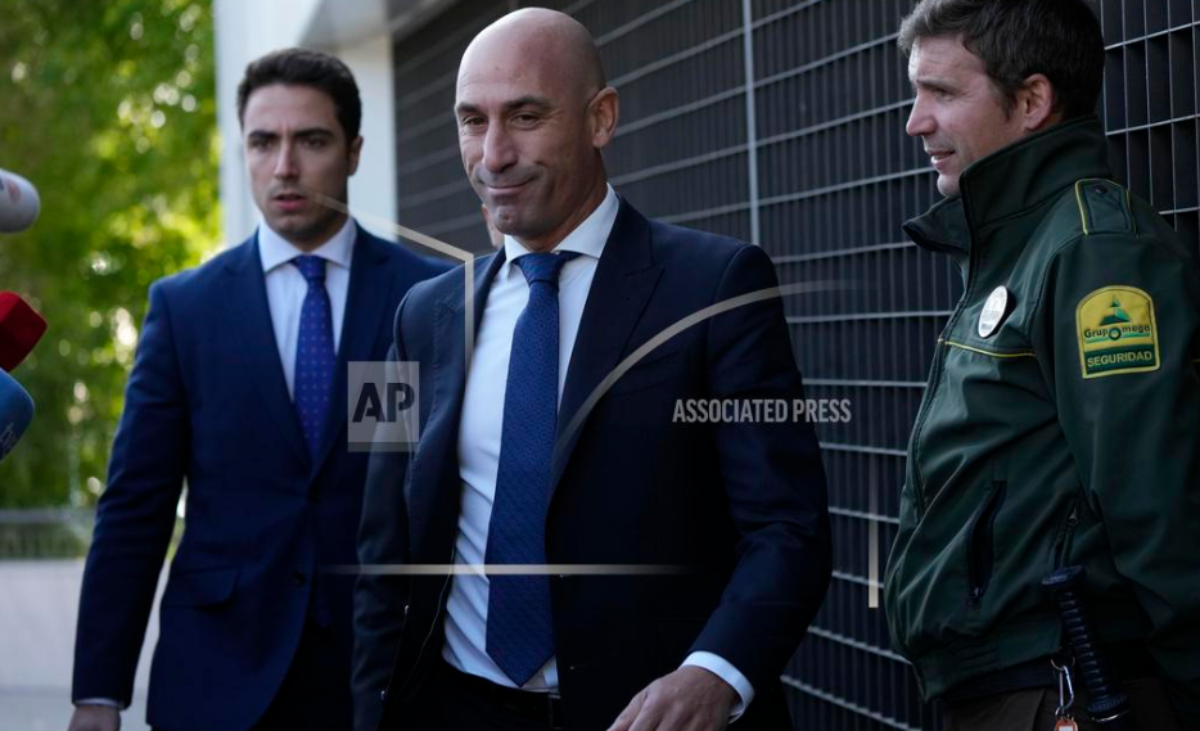-
Posts
10,064 -
Joined
-
Last visited
Content Type
Events
Forums
Downloads
Quizzes
Gallery
Blogs
Everything posted by Social Media
-
Donald Trump has made it clear: if he returns to the presidency, he will withhold federal funds from any school that enforces a vaccine mandate. This stance, while popular among his supporters, has raised significant concerns about its potential impact on public health and education across the United States. In recent speeches, Trump has doubled down on his vow, stating that he will not allocate a single penny to schools with vaccine mandates, from kindergarten through college. This hardline stance has sparked debate and criticism from health experts, educators, and politicians alike. Critics argue that Trump's proposal would effectively strip federal funding from every public school district in the country. Such a move would jeopardize the health and safety of students by undermining longstanding immunization policies that protect against diseases like polio, measles, and hepatitis B. While Trump's rhetoric may appeal to his base, many question the feasibility and wisdom of his plan. Dr. Peter Hotez, a renowned expert in pediatric virology, has expressed concern that implementing such a policy would lead to a public health catastrophe. The broader implications of Trump's proposal extend beyond public health. By politicizing vaccine mandates, the former president is injecting further division into an already contentious issue. The politicization of public health measures threatens to erode trust in science and undermine efforts to combat infectious diseases. Moreover, Trump's vow underscores the ongoing polarization of American politics. As the Republican Party continues to embrace anti-vaccine rhetoric, it risks alienating moderate voters and exacerbating existing public health challenges. In the end, Trump's pledge to cut federal funds for schools with vaccine mandates represents a dangerous precedent. It prioritizes political ideology over public health and education, putting the well-being of children and communities at risk. As the debate rages on, the stakes could not be higher for the future of America's schools and the health of its citizens. Credit; MSNBC 2024-05-13 Get our Daily Newsletter - Click HERE to subscribe
-
Labour leader Keir Starmer has declared that his party would immediately cease all deportation flights to Rwanda upon winning the general election. This announcement comes amidst escalating debates surrounding the Tory scheme for processing asylum seekers and increasing concerns over illegal immigration. Speaking passionately in Deal, Starmer underscored his commitment to scrapping the Rwanda deportation scheme entirely, labeling it as both a "gimmick" and a "waste of money." He emphasized the need for a more robust approach to border security, advocating for the establishment of a border security command to replace the controversial deportation program. The decision to halt deportation flights to Rwanda has sparked polarized reactions, with Home Secretary James Cleverly dismissing Labour's stance as "comic" and "ridiculous." Cleverly defended the government's initiative, arguing that it was still in its early stages and had the potential to yield positive results in addressing illegal migration. Despite criticism from the Conservatives, Starmer remained resolute in his stance, refusing to engage in the rhetoric of "stopping the boats" and instead focusing on the need to dismantle criminal smuggling networks. He outlined Labour's plan to allocate £75 million towards funding specialist officer roles to combat people-smuggling, leveraging new counter-terrorism powers to bolster border protection. Furthermore, Starmer condemned the current asylum system as "broken" and pledged to overhaul it, emphasizing the importance of decisive leadership in tackling the nation's pressing challenges. He criticized the prevailing culture of "gesture politics" in Westminster, advocating for a shift towards practical action that drives meaningful progress. In a broader context, Starmer positioned himself as a champion of pragmatic governance, vowing to steer clear of empty rhetoric and prioritize tangible solutions. Since assuming leadership of the Labour Party, he has sought to distance himself from the grandstanding of the past, opting instead for a measured approach grounded in substantive policy proposals. Credit: The Guardian 2024-05-13 Get our Daily Newsletter - Click HERE to subscribe
-
Speaker Mike Johnson has been urging lawmakers to remember their shared identity as Americans and focus on common adversaries rather than internal strife. Johnson, a Republican from Louisiana, recently weathered an attempt to oust him from his leadership role. Yet, instead of dwelling on divisions, he emphasized the need for unity in facing external threats. Reflecting on a poignant moment in history, Johnson recalled how former President Ronald Reagan and Democratic Speaker Tip O'Neill found common ground after a harrowing assassination attempt. Despite their ideological differences, they maintained mutual respect, setting an example of bipartisan cooperation sorely needed today. "The person on the other side of the aisle is not an enemy," Johnson asserted. "They're a fellow American. Our enemies are like Hamas and Hezbollah—those who seek to harm us." Taking the helm just over six months ago, Johnson's tenure has been marked by challenges and controversies. Following the departure of former Speaker Kevin McCarthy, he stepped up to lead House Republicans. Since then, he's navigated a delicate balancing act, addressing urgent matters like aid for Ukraine while addressing GOP demands for stricter border security. However, internal tensions flared when Rep. Marjorie Taylor Greene of Georgia pushed for Johnson's removal, citing differences in leadership approach. Yet, in a resounding show of support, the House rallied behind Johnson, with even former President Donald Trump backing him. In an interview with Politico shortly after surviving the vote, Johnson emphasized the importance of putting aside personal grievances for the greater good. "We have a job to do here. We have to govern," he stated. "Let's rip the Band-Aid off and get it done." Acknowledging the frustrations of his colleagues, Johnson affirmed his commitment to inclusivity, welcoming constructive feedback from both sides of the aisle. Despite the attempted ousting, he pledged not to harbor resentment and stressed the imperative of cooperation, especially given the narrow Republican majority in the House. "The landslide vote against removing the Speaker is a signal that people on both sides of the aisle understand this is not a time for games," Johnson emphasized. In a political landscape often marred by polarization and discord, Johnson's steadfast call for unity serves as a reminder of the power of bipartisanship in tackling pressing challenges. As lawmakers grapple with complex issues and external threats, his message resonates for a more collaborative future in Congress. Credit: The Hill 2024-05-13 Get our Daily Newsletter - Click HERE to subscribe
-
Knife crimes are on the rise in England and Wales, sparking widespread concern and calls for urgent government intervention. Recent deadly attacks, including the tragic killing of a 14-year-old boy in London, have reignited public anxiety and intensified demands for stricter measures to address the escalating violence. The heartbreaking story of Pooja Kanda, who lost her son Ronan to a sword attack two years ago, highlights the devastating impact of knife crimes on families across the country. For Kanda, news of another senseless killing dredged up painful memories and underscored the urgent need for action to prevent further tragedies. In a nation where gun ownership is heavily restricted, knives have become the weapon of choice in many crimes, often ending up in the hands of young individuals. Despite efforts to curb the proliferation of knives, the number of fatal stabbings continues to rise, fueling public fears and prompting calls for decisive government action. Last year alone, "knife-enabled" crime increased by 7% in England and Wales, with a staggering 20% jump in London. While kitchen knives remain the most commonly used weapon in fatal stabbings, the prevalence of headline-grabbing attacks has thrust the issue into the spotlight. The recent surge in knife crimes has prompted widespread debate and soul-searching, with calls for measures such as increased stop-and-search policies and stricter regulations on knife sales. Even public figures like actor Idris Elba have joined the chorus of voices calling for action to address the growing crisis. Unlike the debate over gun control, which is largely settled in the UK following the Dunblane massacre, regulating knives poses unique challenges. While laws prohibit the sale of knives to minors and restrict carrying them in public, loopholes and loopholes in enforcement persist. Efforts to ban certain types of blades, such as switchblades and zombie knives, have been met with mixed success, and a new law set to take effect in September aims to further restrict the sale of machetes. However, experts remain skeptical about the effectiveness of such measures in tackling the root causes of knife crimes. The enduring problem of knife violence in the UK is underscored by a grim history of attacks and statistics that paint a sobering picture of the scale of the problem. From the 2017 London Bridge attack to the recent spate of stabbings in cities across the country, the threat of knife crimes looms large in public consciousness. While guns may be the weapon of choice in other countries, blades are responsible for the majority of homicides in the UK, reflecting a unique set of challenges and complexities. Despite efforts to address the issue, the frequency of knife attacks continues to fuel a sense of dread and distrust in communities. For individuals like Pooja Kanda, who has tirelessly campaigned for stricter knife laws in memory of her son Ronan, the fight against knife crimes is personal. As families continue to mourn lost loved ones and communities grapple with the aftermath of senseless violence, the need for comprehensive and effective solutions has never been more urgent. Credit: ABC News 2024-05-13 Get our Daily Newsletter - Click HERE to subscribe
-
Venezuela is on the brink of a historical environmental tragedy, with the International Cryosphere Climate Initiative (ICCI) sounding the alarm that it may soon become the first nation to lose all its glaciers. The Humboldt, or La Corona, once classified as the country's last glacier, has now been downgraded to an ice field, marking a significant milestone in the country's environmental decline. The Humboldt glacier, nestled in the Andes, has dwindled to a fraction of its former size, shrinking from 450 hectares to a mere two, according to researchers at the University of Los Andes in Colombia. Luis Daniel Llambi, an ecologist at the university, grimly noted that even this estimate might be generous. Dr. Caroline Clason, a glaciologist at Durham University, highlighted the drastic reduction in ice cover on the glacier since the 2000s, ultimately leading to its reclassification as an ice field. The diminishing ice mass reflects a broader trend of ice loss worldwide, contributing to rising sea levels and exacerbating the impacts of climate change. While there's no universal standard for defining a glacier's minimum size, glaciologists typically recognize a mass of at least 10 hectares as meeting the criteria. However, recent measurements suggest that the Humboldt glacier may have fallen below this threshold as early as 2015-2016. Efforts by the Venezuelan government to mitigate the glacier's loss by covering it with a thermal blanket have drawn criticism from local climate scientists. Concerns abound that such measures could introduce plastic contamination into the fragile ecosystem as the covering degrades. Professor Mark Maslin of University College London underscored the irreversible nature of glacier loss, emphasizing the critical role glaciers play in regulating local climate and freshwater resources. As glaciers disappear, communities reliant on them for freshwater face heightened vulnerability during droughts and dry spells. The implications extend beyond Venezuela, with climate scientists warning that other nations, including Indonesia, Mexico, and Slovenia, are also at risk of losing their glaciers. These smaller ice caps, though not significant contributors to sea-level rise, are vital for regional water security and ecosystem stability. Amidst these dire warnings, there remains a glimmer of hope: by swiftly reducing carbon emissions, we can still preserve some of the world's remaining glacial deposits. Dr. James Kirkham and Dr. Miriam Jackson of the ICCI emphasized the urgency of action, noting that decisive measures could safeguard livelihoods and bolster energy, water, and food security for generations to come. 2024-05-12 Get our Daily Newsletter - Click HERE to subscribe
-
In a recent report, the US government has raised concerns that Israel may have breached humanitarian law in Gaza by using American-supplied weapons. While the report acknowledges Israel's challenges in dealing with Hamas, it suggests that some actions may have been inconsistent with international obligations. The report, which was submitted to Congress after being ordered by the White House, has sparked debate over the use of US arms in the conflict between Israel and Hamas. While it does not definitively conclude that Israel violated international law, it raises important questions about the use of American weapons in the region. According to the report, Israel's use of US-made weapons in Gaza may have been "inconsistent" with its obligations under international humanitarian law. While the US has received assurances from Israel about the legal use of these weapons, the report suggests that further investigation is needed to ensure compliance. One of the main challenges highlighted in the report is the difficulty in determining legitimate targets in a conflict where Hamas "uses civilian infrastructure for military purposes and civilians as human shields". This makes it challenging to assess whether Israel's actions were in line with international law. The report also raises concerns about Israel's cooperation with US efforts to provide humanitarian aid to Gaza. While Israel has not been found to be prohibiting aid delivery, there were initial challenges in maximizing humanitarian assistance during the conflict. It noted, however, that this situation had changed. President Joe Biden's recent threat to withhold certain weapons from Israel highlights the seriousness of the situation. The US government is taking steps to ensure that American weapons are not used in ways that violate international law or exacerbate civilian harm. Overall, the report underscores the complexity of the situation in Gaza and the need for careful consideration of the use of US weapons in the region. Israel launched a military campaign in Gaza to destroy Hamas in response to the group's attack on southern Israel on 7 October. 2024-05-11 Get our Daily Newsletter - Click HERE to subscribe
-
Steve Bannon's Conviction Upheld: Facing Prison Time This decision potentially paves the way for Bannon, 70, to serve time behind bars, marking the culmination of years of legal battles and political turmoil. Bannon's conviction stems from his refusal to comply with congressional subpoenas related to the investigation into the January 6 Capitol riot. In 2022, he was found guilty of contempt of congress and sentenced to four months in prison, along with a fine of $6,500. Despite his denials of any criminal wrongdoing, Bannon has been unable to evade the consequences of his actions. Throughout the legal proceedings, Bannon's defense has maintained that his refusal to testify was based on legal advice and an attempt to negotiate with the congressional committee. However, the US DC Circuit Court of Appeals dismissed this argument, stating that it contradicted established legal principles. In a unanimous decision, the court rejected Bannon's defense, emphasizing that the "advice of counsel" claim holds no weight in this context. Justice Bradley Garcia, writing on behalf of the court, underscored the clarity of settled law in this matter. Despite the court's ruling, Bannon has not been immediately ordered to begin serving his prison sentence. He now has seven days to seek reconsideration from the court, prolonging the legal battle and uncertainty surrounding his fate. Bannon's conviction is part of a broader crackdown on individuals involved in the events of January 6 and their refusal to cooperate with investigations. Peter Navarro, another former Trump aide, recently reported to prison after his own contempt of congress conviction, underscoring the gravity of the situation. Steve Bannon's journey from a key figure in Trump's 2016 election campaign to a convicted criminal reflects the tumultuous nature of American politics in recent years. Despite his influential role, Bannon's tenure at the White House was marred by controversy, culminating in his departure following the violent events in Charlottesville, Virginia, in 2017. Even after leaving his official position, Bannon remained a prominent figure in right-wing circles, maintaining close ties to Trump and continuing to exert influence through his podcast and media appearances. However, with his conviction upheld, Bannon now faces the prospect of serving time in prison, marking a significant fall from grace for one of Trump's most ardent supporters. 2024-05-11 Get our Daily Newsletter - Click HERE to subscribe
-
The United Nations General Assembly has made strides to bolster Palestine's standing within the international community. The resolution, passed, advocates for Palestine's acceptance as a full member of the United Nations, a development that has stirred both hope and controversy. For years, Palestine has held a non-member observer state status at the UN, offering limited rights and recognition on the global stage. However, this latest resolution signals a push for a more significant role for Palestine within the organization, including the ability to participate fully in debates, propose agenda items, and have representatives elected to committees. It's a significant step forward, though membership ultimately rests in the hands of the UN Security Council. The backdrop to this decision is a complex web of geopolitical tensions, historical grievances, and ongoing conflicts. The issue of Palestinian statehood has been a thorny one for decades, with deep-seated divisions and conflicting narratives on both sides. For Palestinian President Mahmoud Abbas, the resolution is a ray of hope, a validation of Palestinian aspirations for statehood and self-determination. He sees it as a catalyst for renewed efforts to secure full UN membership, a goal that has long eluded the Palestinian people. In a statement following the vote, Abbas expressed gratitude for the support and reiterated Palestine's commitment to pursuing its rightful place among the community of nations. On the other hand, Israel's reaction has been predictably contentious. Israeli Ambassador to the UN, Gilad Erdan, lashed out at the decision, decrying it as a capitulation to terrorism. He accused the General Assembly of embracing a "terror state" and dramatically tore up a copy of the UN Charter in protest. For Israel, the prospect of Palestine gaining greater recognition on the international stage is deeply unsettling, viewed as a potential threat to its security and legitimacy. Amidst these diplomatic maneuvers, the plight of the Palestinian people remains a stark reality. Decades of conflict, occupation, and displacement have taken a heavy toll, with millions of Palestinians living under harsh conditions in the occupied territories and refugee camps. The dream of a viable Palestinian state seems more elusive than ever, overshadowed by political gridlock, economic hardship, and the specter of violence. At the heart of the matter lies the question of Palestinian statehood and the broader quest for a just and lasting peace in the region. The so-called two-state solution, which envisions an independent Palestinian state existing alongside Israel, has long been touted as the path to reconciliation. However, achieving this vision requires overcoming formidable obstacles, including territorial disputes, security concerns, and the status of Jerusalem, among others. The recent UN resolution is but one chapter in a larger narrative of struggle and resilience for the Palestinian people. It reflects their ongoing quest for recognition, dignity, and justice in the face of adversity. Whether it leads to tangible progress on the ground remains to be seen, but for many Palestinians, it represents a glimmer of hope in an otherwise bleak landscape. 2024-05-11 Get our Daily Newsletter - Click HERE to subscribe
-
More than 25,000 individuals have signed a petition calling on the Department of Justice (DOJ) to launch an investigation into the recent deaths of two whistleblowers from Boeing, as the company faces heightened scrutiny. Organized by the progressive advocacy group MoveOn, the petition highlights the deaths of John Barnett and Joshua Dean. Barnett, a seasoned Boeing employee of 32 years, raised concerns about safety and quality control issues within the company's production line before his death in March, which was deemed an apparent suicide. Dean, a former quality auditor at Boeing supplier Spirit AeroSystems, passed away last week due to a bacterial infection after accusing the company's leadership of overlooking manufacturing defects related to the 737 Max. Britt Jacovich, spokesperson for MoveOn, emphasized the urgency of investigating these tragic deaths and addressing the mounting allegations against Boeing. The company faces accusations of silencing employees who speak out about safety concerns, including Sam Salehpour, a quality engineer at Boeing, who testified before a Senate committee about retaliation for raising manufacturing process concerns related to the 787 Dreamliner fuselage. Additionally, Santiago Paredes, a former quality inspector at Spirit AeroSystems, disclosed new allegations against the Boeing supplier, alleging pressure to conceal defects in airline parts. Paredes detailed being demoted after challenging changes in defect reporting protocols, only to be reinstated to a leadership role after lodging a complaint, citing threats and retaliation. The spotlight on Boeing has intensified following a midair incident involving a Boeing 737 Max 9 aircraft in January, where the plane's door plug blew off after takeoff, necessitating an emergency landing due to a significant hole in the aircraft's side. Boeing has chosen not to comment on the matter, as concerns about safety protocols and whistleblower protection continue to reverberate within the aviation industry. 2024-05-11 Get our Daily Newsletter - Click HERE to subscribe
-
In recent years, the United Kingdom has experienced a surge in immigration, posing significant challenges to its social cohesion and infrastructure. Despite a long history of successful integration, the uncontrolled influx of migrants has strained resources and exacerbated social tensions. As the country grapples with the implications of mass migration, it faces critical decisions on immigration policy and societal cohesion. The UK's tradition of openness to immigrants dates back centuries, rooted in principles of religious tolerance, individualism, and the rule of law. Over time, this openness has contributed to a diverse and inclusive society, with immigrants making significant contributions to various fields, including politics, business, and culture. However, the unchecked flow of migrants in recent years has overwhelmed the country's infrastructure and resources, leading to congestion, healthcare shortages, and a housing crisis. Moreover, the government's failure to address issues such as Islamist extremism and the spread of woke critical race theory has further strained social cohesion. The rise of extremism and anti-Semitism threatens to undermine the principles of integration and inclusion that have long defined British society. To address these challenges, the UK must adopt a more discerning approach to immigration, prioritizing skilled migrants who can contribute positively to society. Additionally, efforts must be made to tackle extremism and promote moderate voices within immigrant communities. By taking proactive measures to manage immigration and address social tensions, the UK can preserve its legacy of openness and diversity while safeguarding its social fabric for future generations. 2024-05-11 Get our Daily Newsletter - Click HERE to subscribe
-

The Troubling Trend: Is Islamist Terrorism Gaining Ground?
Social Media posted a topic in World News
Are we inadvertently rewarding terrorism? Recent events suggest so. The aftermath of the October 7 attacks has revealed a disturbing pattern: instead of standing firm against extremism, some Western nations seem to be offering concessions. This shift raises critical questions about the effectiveness of our foreign policy and the message it sends to terrorist groups worldwide. If you're like me, deeply concerned about the rise of Islamist extremism, you'll find these developments alarming. The danger it poses to Jewish communities globally and the threat it poses to liberal values and national security should not be underestimated. Yet, Western support for Israel's efforts to combat terrorism, particularly against Hamas, appears inconsistent and wavering. Most of us want our governments to defend democracy and stand against terrorist threats. But why do our leaders seem hesitant to unequivocally support Israel's fight against Hamas? Why the reluctance to condemn terrorist acts and provide unwavering backing to those combating them? These are questions that demand answers. Instead of adopting a stance of strength and resolve, some Western politicians appear to be pursuing a misguided approach of "peace without victory." This policy, reminiscent of Ronald Reagan's critique during the Cold War, risks emboldening our enemies and undermining our security. By avoiding direct confrontation, we may inadvertently signal weakness, encouraging further acts of terrorism. The aftermath of the October 7 attacks serves as a stark reminder of the dangers of appeasement. The brutal massacre of innocents, accompanied by scenes of unspeakable horror, should have united us in condemnation and a resolve to combat terrorism. Yet, shockingly, we've witnessed a troubling phenomenon: a growing sympathy for the perpetrators and their cause. From prestigious universities to city streets, there's a worrying trend of support for terrorism under the guise of "intifada." This wave of terror, claiming countless lives in suicide bombings and violent attacks, should not be met with tolerance or indifference. Yet, we find ourselves confronted with a disturbing lack of moral clarity and a reluctance to confront evil head-on. Instead of confronting terrorism directly, we seem to be avoiding the difficult decisions necessary to combat it effectively. The reluctance to acknowledge the gravity of the threat posed by extremist groups like Hamas only emboldens them further. It's a dangerous game of appeasement that history has shown leads to disastrous consequences. Reagan's warning about the dangers of appeasement rings true today more than ever. By appeasing our enemies and failing to confront them directly, we risk sending a dangerous message: that terrorism works. This is a message that must be unequivocally rejected if we are to ensure the safety and security of our communities. The reluctance to confront terrorism head-on is not just a failure of leadership; it's a betrayal of our values and principles. We cannot afford to capitulate to the demands of terrorists or allow them to dictate our foreign policy. It's time for Western nations to stand united against extremism and send a clear message: terrorism will not be tolerated, and those who perpetrate it will be held accountable. As we reflect on the events of October 7 and the troubling trends that have emerged since, let us remember the importance of standing firm against terrorism in all its forms. Our resolve and determination to combat extremism must not waver, for the sake of our security, our values, and our future. 2024-05-11 Get our Daily Newsletter - Click HERE to subscribe -
Marius Gustavson, a 46-year-old Norwegian residing in north London, has been sentenced to life imprisonment for orchestrating a disturbing body modification cult, where irreversible mutilations were performed on numerous men. Alongside six co-defendants, Gustavson operated the "Eunuch Maker" website, enticing over 22,000 paying members to witness grotesque surgeries and sexual torture. Prosecutors portrayed Gustavson as a manipulative figure who exploited vulnerable individuals, earning approximately £300,000 from the website's subscribers. His heinous acts included mutilating at least 30 men between 2017 and 2021, with evidence suggesting instances of cannibalism and the sale of severed genitalia. Gustavson's sentencing revealed the extent of his depravity, as he was found guilty of electrocuting a 16-year-old boy and subjecting him to genital mutilation. The court described Gustavson's actions as "human butchery," emphasizing the absence of consent and the lifelong trauma inflicted upon the victims. Six of Gustavson's accomplices, lacking medical qualifications, were also sentenced for their roles in the gruesome enterprise. Their involvement ranged from assisting in surgeries to actively participating in the mutilations. The severity of their sentences reflects the gravity of their offenses and the lasting impact on the victims. The court heard disturbing details of Gustavson's past offenses, including fraud convictions in Norway. Despite the victims' apparent consent, the prosecution underscored the unlawful nature of extreme body modifications and the irreparable harm caused to those involved. Kate Mulholland, a prosecutor, emphasized the CPS's commitment to prosecuting such crimes, highlighting the need to deter others from engaging in similar activities. The sentencing serves as a stark warning against the exploitation and abuse of vulnerable individuals for personal gain. 2024-05-11 Get our Daily Newsletter - Click HERE to subscribe
-
- 1
-

-
Declassified documents unveil a clandestine pursuit by top senators, including Chuck Schumer and the late Harry Reid, to uncover and disclose UFO secrets allegedly held by the U.S. government. The documents detail bipartisan efforts to establish covert programs aimed at retrieving and reverse-engineering unidentified aerial phenomena (UAP) of "non-human" origin, citing "credible sources" alleging governmental concealment of UFO-related information. Despite pushback from department leadership and skepticism from Pentagon officials, senators persist in their quest for transparency, introducing extraordinary legislation and challenging official denials. As congressional scrutiny intensifies and whistleblowers come forward, questions loom over the existence of illicit UFO programs and the possibility of criminal investigations. The recently declassified documents shed light on a covert endeavor spearheaded by prominent senators, transcending party lines, to unravel the mysteries surrounding unidentified aerial phenomena (UAP) or UFOs. Led by stalwarts like Chuck Schumer and Harry Reid, this bipartisan effort aimed to establish clandestine programs for the retrieval and study of UFOs allegedly in the possession of the U.S. government. Central to these revelations are the extraordinary legislative proposals introduced by senators Schumer and Mike Rounds, alleging the existence of secretive "legacy programs" tasked with retrieving and reverse-engineering UFOs of "non-human" origin. Schumer's impassioned remarks on the Senate floor underscored the urgency of disclosing information long withheld from the American public, citing allegations of illegal concealment by elements within the government. However, these legislative endeavors have faced challenges, with key elements stripped from the bills amidst opposition from House lawmakers. Yet, senators remain undeterred, vowing to continue their pursuit of disclosure and accountability. At the forefront of these efforts are revelations from whistleblowers, including Air Force veteran David Grusch, who testified to the existence of covert UFO programs shielded from congressional oversight. Despite official denials and attempts to discredit whistleblowers, senators persist in their quest for transparency, raising questions about the credibility of Pentagon officials and the veracity of government statements. The Pentagon's UFO analysis office, once tasked with investigating such phenomena, now finds itself embroiled in controversy, with allegations of flawed reports and institutional credibility at stake. As congressional scrutiny intensifies, recent comments from senators like Kirsten Gillibrand cast doubt on the efficacy of official denials, hinting at ongoing investigations and potential criminal implications. With the Department of Justice reportedly involved in assessing whistleblower complaints, the specter of criminal charges looms large, challenging the government's blanket denials regarding UFO-related activities. In the midst of these revelations, the credibility of Pentagon officials and the veracity of government statements come under scrutiny, raising fundamental questions about accountability and transparency. As senators press forward with their inquiries, the quest for UFO disclosure enters a new phase, one marked by heightened scrutiny, legal challenges, and the relentless pursuit of truth. 2024-05-11 Get our Daily Newsletter - Click HERE to subscribe
-
An appeals court has upheld Hunter Biden's federal gun charges, clearing the path for the president's son to face trial in June. The 3rd U.S. Circuit Court of Appeals rejected Biden's appeal, citing jurisdictional constraints and refusing to review the trial judge's decision. Despite this setback, Biden's attorney, Abbe Lowell, hinted at potential further review, emphasizing the importance of the issues at hand. The trial is scheduled to begin on June 3, following Judge Maryellen Noreika's affirmation, despite previous attempts to dismiss the charges on grounds of political targeting. Special counsel David Weiss has brought forth three gun-related charges against Biden, who maintains his plea of not guilty, following the collapse of a proposed plea deal. As the case unfolds, questions surrounding the alleged pressure campaign and the conduct of prosecutors remain pivotal. The recent decision by the 3rd U.S. Circuit Court of Appeals marks a significant development in the ongoing legal saga involving Hunter Biden's federal gun charges. Despite efforts to challenge the trial judge's decision, the appeals court maintained that it lacked the jurisdiction to intervene at this stage, paving the way for the case to proceed to trial in June. While Hunter Biden's legal team expressed disappointment at the ruling, they hinted at potential further review, underscoring the importance of the issues at hand. The trial, scheduled to commence on June 3, has been subject to intense scrutiny and legal wrangling in recent months. Hunter Biden's defense has sought to dismiss the charges, alleging political targeting and improper conduct by prosecutors. However, these claims were dismissed by Judge Maryellen Noreika, who affirmed the trial date and emphasized the lack of credible evidence supporting allegations of outside influence on the special counsel's decision. At the heart of the case are three gun-related charges brought against Hunter Biden by special counsel David Weiss. These charges, including allegations of failing to disclose drug use and unlawful possession of a firearm, have been vehemently denied by Biden, who maintains his plea of not guilty. The case took a dramatic turn with the collapse of a proposed plea deal, which would have seen Biden plead guilty to tax offenses in exchange for avoiding formal gun-related charges and entering a pretrial diversion program. As the trial date approaches, questions surrounding the conduct of prosecutors and the alleged pressure campaign from Congressional Republicans remain unresolved. Hunter Biden's legal team has raised concerns about the changing stance of prosecutors and the lack of clarity surrounding their decisions. Despite these challenges, the upcoming trial is expected to shed light on the intricacies of the case and its implications for the broader political landscape. 2024-05-11 Get our Daily Newsletter - Click HERE to subscribe
-
Rebecca Joynes, a 30-year-old teacher, faces six counts of engaging in sexual activity with minors, including two instances while in a position of trust. Shocking revelations emerged in court as it was alleged that Joynes laughed off concerns about age raised by one of the teenage boys she allegedly had sex with. During the trial at Manchester Crown Court, testimony revealed a chilling exchange between Joynes and a 15-year-old boy, identified only as Boy A. After picking up Boy A from school and taking him to her flat, where they reportedly engaged in sexual activity, Joynes allegedly made a comment about driving. When Boy A mentioned his age-related inability to drive, Joynes purportedly laughed and dismissively responded with, "Oh shut up. Stop saying that." The prosecution outlined the disturbing details of Joynes's alleged actions, including her encounters with two teenage boys, one of whom she reportedly became pregnant by while on bail for the charges related to Boy A. Testimony from Boy A's police interview revealed that Joynes initiated contact with him by providing most of her phone number, leading to exchanges on Snapchat and eventually to their meeting after school. According to Boy A's account, Joynes picked him up in her white Audi A1 and drove to her flat after collecting her dog from day care. Despite Boy A's age and appearance, Joynes allegedly engaged in sexual activity with him twice during their encounter. The court heard that Joynes even purchased an expensive Gucci designer belt for Boy A during a visit to the Trafford Centre. However, the situation escalated when rumors began to circulate, prompting a police investigation and Joynes's subsequent suspension from her school. Despite denying any sexual activity with Boy A and being released on bail with restrictions, it was later revealed that Joynes had a long-term sexual relationship with another teenage boy while suspended, who is also the father of her young daughter. Throughout the trial, Joynes has maintained her innocence, claiming that sexual activity with the second boy did not begin until he turned 16. However, the case highlights the grave implications of allegations involving the abuse of trust by individuals in positions of authority, especially concerning vulnerable minors. As the trial continues, questions remain about the extent of Joynes's alleged actions and the impact on the victims involved. 2024-05-11 Get our Daily Newsletter - Click HERE to subscribe
-
A growing number of MAGA voters are uprooting their lives and relocating to Russia, citing nostalgia for a bygone era, admiration for traditional values, and disillusionment with the state of affairs in the United States. Drawn to Russia's perceived resemblance to 1950s America, conservative expats praise the country's Christianity, scenic landscapes, and attractive populace, with some even expressing support for autocratic leader Vladimir Putin. Despite geopolitical tensions and warnings from the U.S. government, these expatriates find solace in their new surroundings, viewing Russia as a bastion of stability and spirituality. Amidst political upheaval and societal discord in the United States, a surprising trend is emerging: MAGA voters are trading the American Dream for a new life in Russia. Motivated by a yearning for a simpler, more traditional way of life, and disillusioned with the current state of affairs in their homeland, these expatriates are finding solace in the former communist state. Praising Russia's Christian values, picturesque landscapes, and abundance of beautiful women, they paint a portrait of a nation reminiscent of a bygone era. One such individual, Peter Frohwein, 62, relocated from Atlanta to Yalta in Crimea, captivated by the allure of Russia's cultural landscape. Embracing the prospect of starting a family in his new surroundings, Frohwein lauds Russia's multilingual environment and views it as a sanctuary from the political and social turmoil plaguing the United States. Similarly, Bernd Ratsch, 56, traded Texas for Moscow in pursuit of a quieter, more stable existence, echoing sentiments of disenchantment with U.S. politics and leadership. For Joseph Rose, 49, and his family, Russia represents a beacon of hope and spiritual revival. Documenting their journey on YouTube, they celebrate Russia's burgeoning Christian identity and contrast it with what they perceive as a decline of religious values in America. Rose views his relocation as a divine calling, guided by faith and a desire to escape the moral decay of contemporary American society. However, not all transitions have been seamless. The Feenstra family, originally from Canada, encountered obstacles upon their move to Russia, with financial complications and cultural misunderstandings dampening their initial optimism. Despite challenges, their decision to seek refuge from what they perceive as the encroachment of liberal ideology underscores a broader trend among conservative expatriates. Against the backdrop of deteriorating U.S.-Russia relations, the influx of American expats raises questions about the geopolitical ramifications of such migrations. As tensions escalate and incidents like the arrest of American journalist Evan Gershkovich on espionage charges strain diplomatic ties, the divide between the two nations deepens. Yet, for MAGA voters seeking sanctuary in Russia, the allure of nostalgia and stability outweighs the risks, prompting a reevaluation of traditional notions of home and belonging. 2024-05-11 Get our Daily Newsletter - Click HERE to subscribe
- 258 replies
-
- 21
-

-

-

-

-
The annual Red Square military parade under President Putin's leadership took on a somber tone this year, marked by fewer participants and military hardware, but with poignant references to Russia's ongoing conflict in Ukraine. In his address, Putin emphasized the significance of Victory Day amidst the current Special Military Operation in Ukraine, praising the soldiers involved as heroes. The parade served as a reminder of the human cost of victory, with over 27 million Soviet citizens lost in World War Two, known as the Great Patriotic War. However, Putin's speech also carried a warning to the West, amidst accusations of threats from nations like the UK and France. Emphasizing Russia's readiness to defend itself, Putin asserted the nation's commitment to avoiding global confrontation while maintaining combat readiness. Victory Day holds immense importance in modern Russia, symbolizing not only past triumphs but also shaping the national identity and justifying present actions. The narrative of victory is utilized to portray current conflicts, such as the war in Ukraine, as a continuation of historical struggles against external foes. Yet, amidst this narrative lies a shift in perception. Once a nation that fervently advocated for peace, Russia is now witnessing the normalization of war. Formerly, the sentiment of "No more war" resonated across the country, but now, with ongoing conflicts memorialized alongside past wars, there's a growing acceptance of war as an inevitable aspect of human nature. Putin's Red Square Parade encapsulated this complex narrative, intertwining remembrance with a stern warning to adversaries, reflecting both Russia's historical resilience and its evolving stance towards conflict. 2024-05-10 Get our Daily Newsletter - Click HERE to subscribe
-
Former President Donald Trump's pitch to top oil executives for a $1 billion campaign contribution sheds light on his strategy to overturn Biden's environmental policies and secure industry support. During a dinner at Mar-a-Lago, Trump urged oil executives to raise $1 billion for his re-election bid, promising to reverse President Biden's environmental regulations in return. His transactional approach underscores his focus on leveraging the oil industry's financial power to shape his environmental agenda. In contrast to Biden's climate policies, which prioritize environmental regulations and clean energy initiatives, Trump has openly dismissed climate change as a "hoax" and rolled back numerous environmental protections during his presidency. Trump's promise to dismantle Biden's environmental actions aligns with his pro-fossil fuel stance and commitment to boosting oil production. Despite the oil industry's concerns about Biden's policies, the United States has witnessed record oil production under his administration. However, Trump's pledge to further relax regulations and expedite permits for oil drilling suggests an even greater windfall for oil companies in a potential second term. At the Mar-a-Lago dinner, Trump assured executives of immediate actions to benefit the oil industry, including lifting the freeze on permits for liquefied natural gas (LNG) exports and expediting oil drilling leases in the Gulf of Mexico. His promises directly catered to the interests of companies like Venture Global and Cheniere Energy, which stand to gain from increased LNG exports. Moreover, Trump vowed to scrap Biden's perceived "mandate" on electric vehicles, mischaracterizing EPA regulations aimed at reducing emissions from car tailpipes. The move reflects the oil industry's opposition to measures that could diminish demand for petroleum products, prompting lobbying efforts against the EPA's tailpipe rules. While the oil industry may not present a unified front in its requests to the Trump administration, Trump's alignment with its priorities highlights the significance of addressing industry concerns. As Trump seeks to secure industry support for his re-election bid, his pledges to roll back environmental regulations and prioritize fossil fuel interests underscore the stakes of the upcoming election for both the oil industry and environmental advocates. 2024-05-10 Get our Daily Newsletter - Click HERE to subscribe
-
Former White House aide Madeleine Westerhout's emotional testimony sheds light on her departure from the Trump administration and offers insights into Donald Trump's communication style. Westerhout tearfully recounts her resignation from the White House, attributing it to a conversation she believed was off the record but later had repercussions on her job. She acknowledges leaking private information about Trump and his family, leading to her forced resignation. During her testimony, Westerhout provides crucial details about the handling of cheques from the Trump Organization to the White House. She describes her role in bringing these cheques for Trump to sign and sending them back to the Trump Organization. Additionally, she confirms that Trump often personally signed each cheque by hand. Moreover, Westerhout offers insights into Trump's use of Twitter, revealing that he often wrote his own tweets and preferred dictating them to her when communication staffer Dan Scavino was unavailable. She describes her role in helping Trump craft tweets, noting his preferences for certain words and punctuation. Westerhout's testimony provides a glimpse into Trump's working preferences and communication methods, emphasizing his preference for in-person or phone communication over email. She recounts Trump's working environment, including his preference for using a dining room adjacent to the Oval Office for official business. During the proceedings, Trump's lawyer sought to modify his gag order to allow him to respond publicly to Stormy Daniels' allegations. However, the judge denied the request, citing concerns about preserving the integrity of the case and protecting witnesses. In addition to Westerhout's testimony, Stormy Daniels returned to the stand, facing intense scrutiny from Trump's legal team. Despite attempts to portray her as motivated by financial gain, Daniels maintained her stance and emphasized her desire to protect her family. Overall, the day's proceedings provided valuable insights into Trump's presidency and the ongoing legal challenges he faces. From emotional testimonies to legal motions, the courtroom drama continues as the trial unfolds. 2024-05-10 Get our Daily Newsletter - Click HERE to subscribe
-
In a significant declaration, a top adviser to Iran's Supreme Leader, Kamal Kharrazi, has announced that Iran may revise its nuclear doctrine if faced with existential threats, particularly from Israel. This statement has sparked fresh concerns about Iran's nuclear intentions and the potential ramifications for regional stability. Kharrazi emphasized that while Iran currently has no plans to develop nuclear weapons, the country may be compelled to alter its military strategy in response to external threats. His remarks, reported by Iran's Student News Network, underscore Tehran's readiness to adapt its defense posture based on perceived risks to its security. The backdrop of Kharrazi's statement lies in Iran's longstanding position on nuclear weapons. Supreme Leader Ali Khamenei has previously issued a fatwa banning the production and use of nuclear bombs, asserting that such actions are religiously forbidden. However, Kharrazi's assertion suggests a willingness to reconsider this stance under certain conditions. This shift in rhetoric comes amidst escalating tensions between Iran and Israel, with the latter being a vocal critic of Iran's nuclear program. Kharrazi's reference to the "Zionist regime" signals Iran's perception of Israel as a primary adversary and underscores the potential role of geopolitical dynamics in shaping Iran's security calculus. Moreover, recent developments have added fuel to the fire of regional instability. Iran's Islamic Revolutionary Guard Corps (IRGC) commander, Ahmad Haghtalab, hinted at the possibility of revising Iran's nuclear policy in response to Israeli threats. This highlights the volatile nature of the situation and the potential for further escalation. In April, the confrontation between Iran and Israel reached a dangerous peak, with Tehran launching a barrage of missiles and drones targeting Israel. This aggressive response was purportedly triggered by a suspected Israeli strike on an Iranian facility in Syria, resulting in casualties among senior IRGC officials. The tit-for-tat exchanges between Iran and Israel underscore the fragility of the regional security landscape and the potential for miscalculation. While both sides have thus far avoided a full-scale conflict, the risk of escalation remains ever-present, with grave implications for the wider Middle East. Amidst these tensions, the role of international actors, particularly the United States and the European Union, becomes crucial. The international community must work to de-escalate tensions and prevent further deterioration of the situation. Diplomatic efforts, coupled with dialogue and engagement, offer the best hope for resolving the underlying grievances and addressing security concerns. Furthermore, the role of multilateral institutions, such as the International Atomic Energy Agency (IAEA), is paramount in ensuring transparency and accountability in Iran's nuclear activities. The IAEA's recent criticism of Iran's lack of cooperation underscores the need for robust monitoring and verification mechanisms to prevent nuclear proliferation. In conclusion, Iran's announcement regarding a potential shift in its nuclear doctrine highlights the complex and volatile nature of regional dynamics in the Middle East. While the prospect of armed conflict remains a concern, diplomatic engagement and multilateral cooperation offer avenues for mitigating risks and promoting stability. The international community must remain vigilant and proactive in addressing the underlying drivers of tension to prevent further escalation and uphold peace and security in the region. 2024-05-10 Get our Daily Newsletter - Click HERE to subscribe
-
Former President Donald Trump launched a scathing attack on President Joe Biden's handling of the Israeli-Palestinian conflict, particularly regarding the supply of weapons to Israel. Trump accused Biden of siding with Hamas and criticized his administration's stance on the matter. The exchange underscores the ongoing tensions surrounding U.S. foreign policy in the Middle East and the complexities of the Israeli-Palestinian conflict. Trump's criticism stemmed from Biden's statement suggesting a possible withholding of weapons from Israel if it proceeded with its plan to invade the city of Rafah. In a post on his Truth Social platform, Trump condemned Biden's stance, alleging that it effectively amounted to supporting Hamas terrorists. The former president lambasted Biden for what he perceives as weakness in dealing with the conflict, asserting that such actions would not have occurred if he were still in office. Moreover, Trump drew parallels between Biden's approach to the Israeli-Palestinian conflict and his handling of domestic issues, such as campus protests. He accused Biden of capitulating to "Pro-Terrorist Mobs" and implied that his donors were influencing his decision-making. This critique not only highlights Trump's ongoing involvement in political discourse but also underscores the broader divisions within U.S. politics regarding foreign policy and national security. Trump's remarks were echoed by Senator Mitt Romney, a prominent figure within the Republican Party, who criticized Biden's hesitation to supply weapons to Israel. Romney emphasized the importance of standing by allies and questioned Biden's approach, labeling it as "bad policy" and a "terrible message" to Israel and other allies. The convergence of viewpoints between Trump and Romney underscores the bipartisan nature of support for Israel within the U.S. political landscape. Biden's administration has faced mounting pressure to address the Israeli-Palestinian conflict, particularly in light of recent escalations in violence. The delicate balance between supporting Israel's right to defend itself and advocating for Palestinian rights has been a longstanding challenge for U.S. policymakers. Biden's cautious approach reflects the complexity of the situation and the need to balance competing interests, both domestically and internationally. In response to Trump's criticism, the Biden administration reiterated its commitment to Israel's security while also emphasizing the importance of promoting peace and stability in the region. The administration has sought to de-escalate tensions and facilitate dialogue between Israeli and Palestinian leaders, although progress has been slow and incremental. The issue of weapon supply to Israel remains a sensitive and contentious topic, with implications for broader geopolitical dynamics in the Middle East. As the Israeli-Palestinian conflict continues to evolve, the role of the United States in mediating and facilitating negotiations remains crucial. Biden's administration faces ongoing challenges in navigating the complexities of the region, balancing strategic interests with humanitarian concerns. The exchange between Trump and Biden underscores the enduring significance of the Israeli-Palestinian conflict in shaping U.S. foreign policy and international relations. 2024-05-10 Get our Daily Newsletter - Click HERE to subscribe
-
Former president of the Spanish football federation, Luis Rubiales, is set to stand trial for an alleged incident involving a non-consensual kiss with player Jenni Hermoso after Spain's victory in the women's World Cup. Rubiales faces charges of sexual assault and coercion following the incident, which occurred following Spain's triumph over England last August. The 46-year-old is accused of kissing Hermoso on the lips without her consent, prompting her testimony in court against him. Rubiales vehemently denies any wrongdoing, asserting that the kiss was consensual. However, the Spanish High Court has determined that there is sufficient evidence to proceed with a trial. In addition to Rubiales, former coach Jorge Vilda, current sporting director Albert Luque, and marketing head Ruben Rivera will also stand trial for allegedly coercing Hermoso into stating that the kiss was consensual. The severity of the charges could result in significant prison terms for those found guilty. The court has imposed a bail of €65,000 for the sexual assault charge against Rubiales, with an additional joint bail of €65,000 for the coercion charge, shared among all accused parties. Notably, the trial will take place at the High Court due to the alleged offences occurring abroad. As this high-profile case unfolds, it underscores the importance of respecting boundaries and ensuring consent in all interactions, particularly within professional environments like sports. The outcome of the trial will undoubtedly have far-reaching implications for the realm of sports governance and gender dynamics within football. 2024-05-10 Get our Daily Newsletter - Click HERE to subscribe
-
In a bid to tackle the alarming rise in antisemitic abuse on university campuses across the UK, Chancellor Rishi Sunak is spearheading efforts to ensure a zero-tolerance approach to hatred and discrimination. With concerns mounting over the toxic environment faced by Jewish students amidst pro-Palestine protests, Sunak is set to convene a crucial meeting with university leaders to address this pressing issue. The Prime Minister's invitation to vice-chancellors of leading universities underscores the urgency of the matter, as reports of antisemitic incidents continue to escalate. The Union of Jewish Students (UJS) has sounded the alarm, highlighting the increasing hostility emanating from pro-Palestine encampments on campuses, which threaten to disrupt student life and safety. Sunak's meeting aims to galvanize university leaders into action, calling for immediate disciplinary measures against any student found inciting racial hatred or violence. Moreover, the police will be involved if criminal acts are detected, signaling a robust response to safeguard the well-being of all students. Acknowledging the surge in antisemitic incidents, Sunak emphasized the need for universities to uphold principles of tolerance and respect while fostering rigorous debate. He stressed that disruptive behavior and harassment have no place in academic settings, where diversity of thought should be celebrated without fear of discrimination. Alongside the meeting, the government has allocated £500,000 to the University Jewish Chaplaincy to bolster support for students affected by antisemitism and intimidation. This funding forms part of a broader £7 million initiative announced by Jeremy Hunt to combat antisemitism in educational institutions. The urgency of the situation cannot be overstated, with antisemitic incidents on university campuses more than tripling in 2023 compared to the previous year. This alarming trend underscores the imperative for swift and decisive action to root out hatred and prejudice from academic environments. Education Secretary Gillian Keegan, Communities Secretary Michael Gove, and Security Minister Tom Tugendhat will join Sunak in the meeting, underscoring the cross-government commitment to combating antisemitism. Keegan emphasized the need for universities to crack down on abuse and ensure that protests do not disrupt campus life unjustly. Recent pro-Palestine encampments at prestigious universities like Oxford and Cambridge have sparked widespread concern, prompting calls for divestment from Israel. While peaceful protests are recognized as fundamental rights, they must not devolve into platforms for hate speech or discrimination. The wave of protests in the UK mirrors similar movements in other countries, highlighting the global resonance of the Israel-Palestine conflict. However, it is imperative that universities uphold their duty to provide a safe and inclusive environment for all students, irrespective of their background or beliefs. 2024-05-10 Get our Daily Newsletter - Click HERE to subscribe
-
The emergence of FLiRT variants underscores the persistent threat of COVID-19, despite declining hospitalizations and relaxed restrictions. As the public adapts to living with COVID-19 as a part of everyday life, the appearance of new variants serves as a stark reminder that the virus continues to circulate and evolve. While hospitalizations are at record lows and many have grown accustomed to the presence of COVID-19, the emergence of FLiRT variants signals that the pandemic is far from over. Despite the positive outlook in terms of hospitalizations and disease spread, uncertainty looms over the evolution of the virus and its potential to cause future outbreaks. The recent phaseout of mandated hospital reporting further adds to the uncertainty surrounding COVID-19 surveillance and tracking efforts. While the current COVID-19 situation is the most promising it has been in four years, there is still a lingering apprehension about the possibility of a resurgence in cases. The prevalence of the KP.2 variant, accounting for a quarter of U.S. cases, and the rise of its sister variant KP.1.1, highlight the ongoing evolution of the virus and the need for continued vigilance. Despite the emergence of new variants, the effectiveness of existing vaccines against serious illness remains promising. However, concerns persist regarding vaccination rates and the potential for a summer wave as immunity wanes and the virus continues to mutate. The recent delay in the FDA advisory meeting to decide on updated COVID shots reflects the need for additional data on circulating variants. While the delay is not expected to impact the fall rollout of vaccines, it underscores the importance of ongoing surveillance and adaptation in response to evolving threats. In summary, while the COVID-19 outlook appears positive in many aspects, the emergence of FLiRT variants serves as a timely reminder of the ongoing uncertainty surrounding the virus. Continued vigilance, vaccination, and surveillance efforts are essential in mitigating the impact of COVID-19 and preventing future outbreaks. 2024-05-10 Get our Daily Newsletter - Click HERE to subscribe




